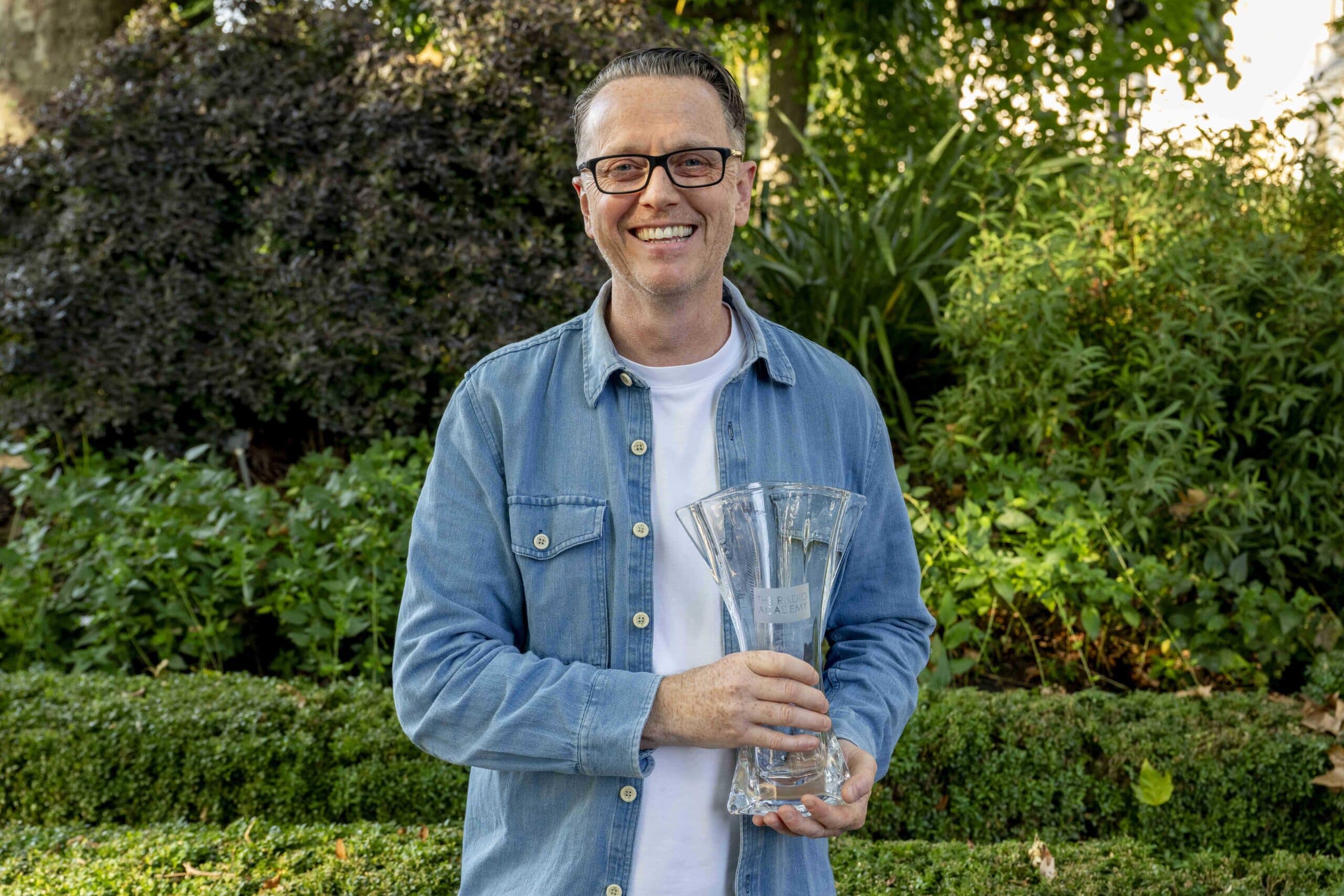
Behind the success of the Prison Radio Association is our dedicated, hardworking staff team who make the world of prison radio in England and Wales tick. Here, we get to know them and spotlight their experience of working for the Prison Radio Association.
Phil is our CEO and co-founder of the Prison Radio Association. He has been with us from the very start to launch and steady our mighty ship, so this month, as we celebrate our 19th birthday, we wanted to let you into his world. Here is what he has to say about life at the Prison Radio Association:
How long have you been working at the Prison Radio Association? What were you doing before?
I’ve been working at the Prison Radio Association since the day it was founded in June 2006. Before that, I led a pilot partnership project from September 2005 as part of my job at the BBC, where I worked as a radio producer, and reporter on the Jeremy Vine Show. That partnership – between the BBC, the Prison Service, and other stakeholders – set out to explore the potential of prison radio.
The pilot resulted in the launch of two prison radio projects in the West Midlands. At the official launch of those projects, it was clear the pilot had been a success – there was genuine enthusiasm and momentum behind the idea. But neither the Prison Service nor the BBC had a plan for what to do next. Along with my co-founders, I realised that the only way to build on that momentum was to leave my job at the BBC and help create a new charity. And that’s how the Prison Radio Association was born.
So, I’ve been working in prison radio since September 2005, and have been leading the PRA since its formation in June 2006.
Before my time at the BBC, I completed a Master’s in Broadcast Journalism. Prior to that, I worked for the local authority in a number of roles – as a residential social worker caring for children in local authority care, and as a learning mentor supporting children excluded from mainstream education due to complex needs. I also spent a year in Bolivia managing and supporting international volunteers working in state-run children’s homes. And before all that, I did a degree in International Development.
What does a typical day at work look like for you?
There really isn’t a typical day at work for me – and that’s one of the things I love about the job.
Most weeks start with something that brings me a huge amount of joy: making The Secret Life of Prisons podcast. I co-host it with the brilliant Paula Harriot, who is not only a natural broadcaster but also an incredible human being. Paula is CEO of Unlock and has spent more than 15 years working in and around the criminal justice system after receiving an eight-year prison sentence. I also get to work with my Deputy Chief Executive, the wonderful Andrew Wilkie – he produces the podcast, and assistant producer – the fantastic Faye Dunn – who came out of prison last summer and is now a full-time and deeply valued member of our team.
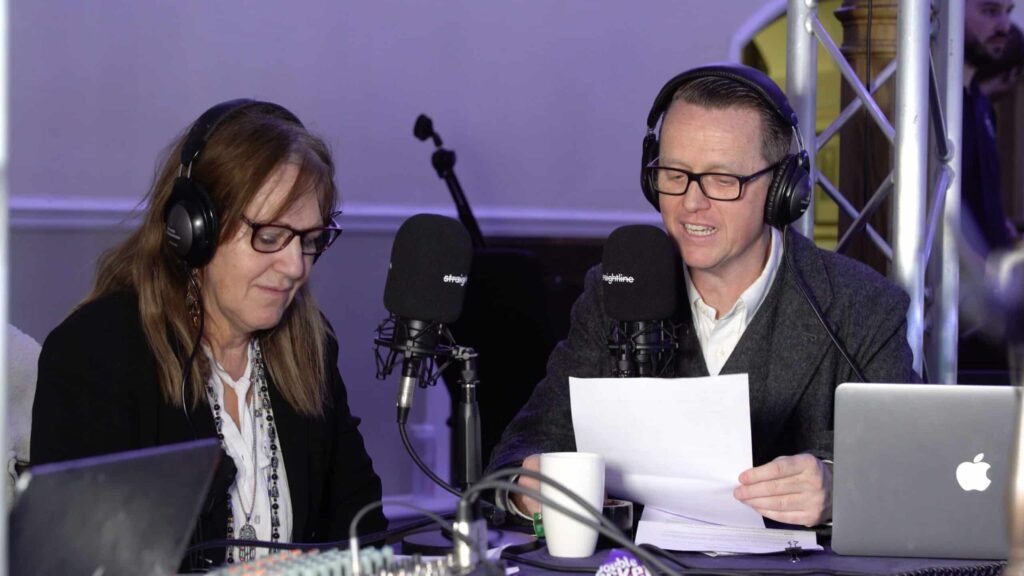
That podcast – made with such a strong and talented team – exists to shine a light on prisons and justice, offering compassionate and grown-up conversations that act as an antidote to the way the media often sensationalises coverage of issues related to crime and justice. It’s a great way to start the week.
The rest of my time could involve anything from senior management and staff meetings to visiting prisons, board meetings with our trustees, or our international work.
The Prison Radio Association leads the global movement Prison Radio International, and I’m proud to chair its Advisory Board. We’re building a global community of people and organisations using audio in criminal justice settings for social good. Right now, we’re running a 12-month project in Brazil, supporting the community-led development of prison radio across the country. As well as getting support from the PRA’s brilliant ‘dev team’, I’m working closely with the amazing Dr Ruth Armstrong and two Brazil-based project managers, and we’ll be heading out there in July for the first field visit.
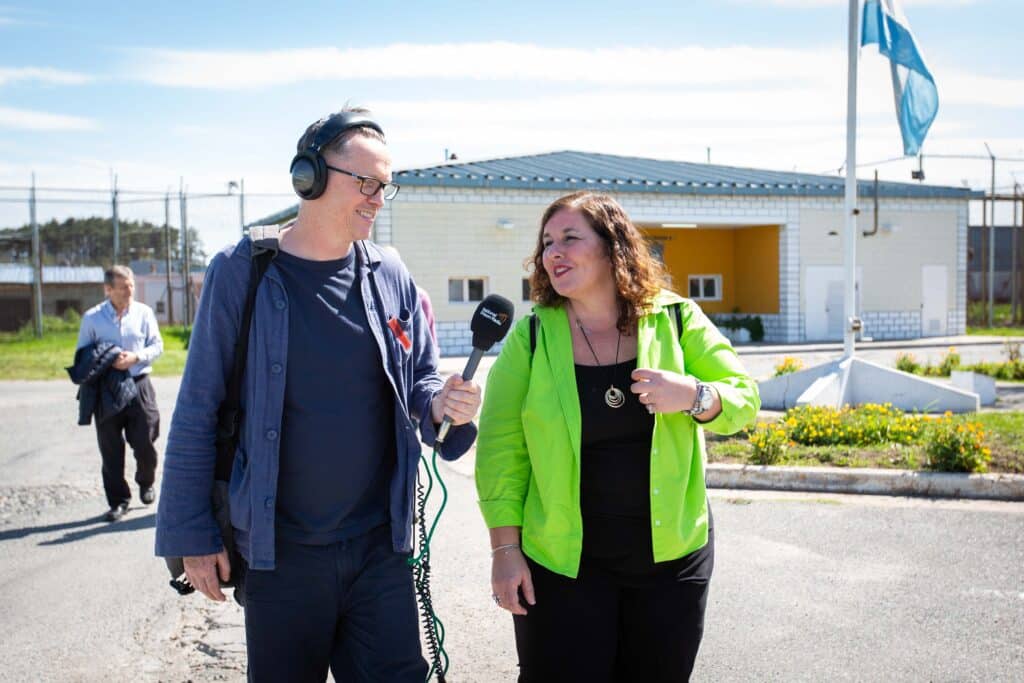
So yes – no two days look the same, and I wouldn’t want them to. Nearly two decades into the job, I still wake up excited about the work.
What is the best thing about working at the Prison Radio Association?
The best thing about working at the PRA is that I believe in it – 100%. I share the values of the organisation completely. It’s a rare privilege to do a job where your personal values are so aligned with the mission of your organisation.
The second-best thing – and it’s a very close second – is the people I work with. I have the best colleagues anyone could ask for. I’m lucky to be part of a dynamic, bright, motivated and – most importantly – compassionate team. We’re all here because we believe in the work. We’re not just colleagues – we’re family.
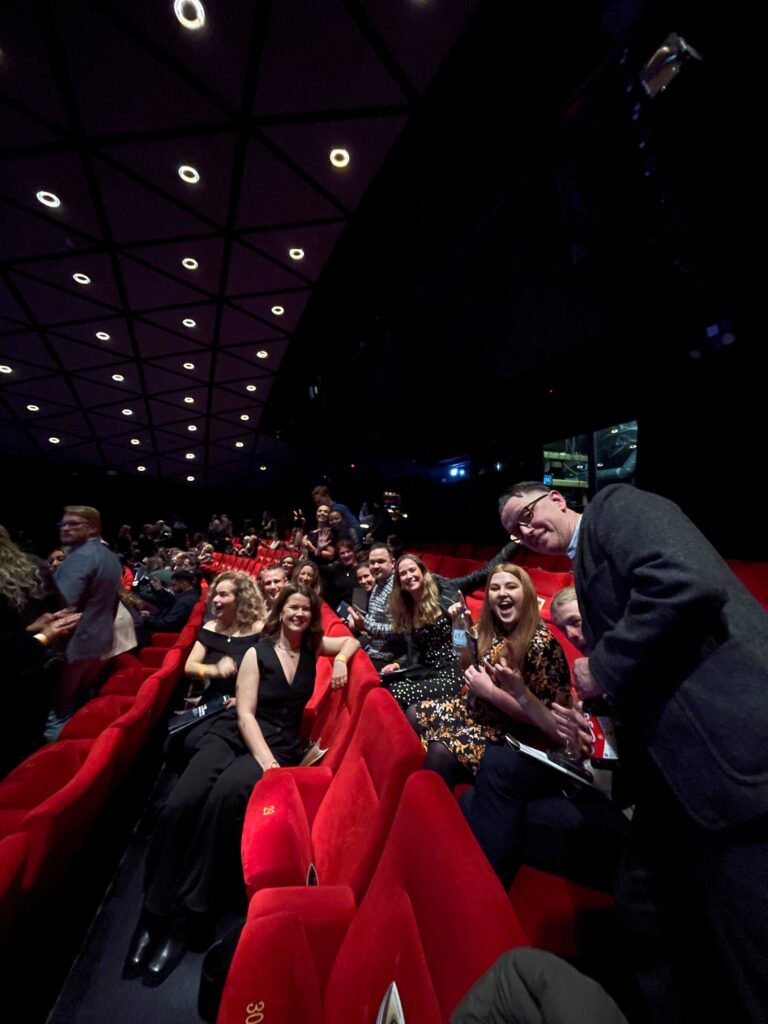
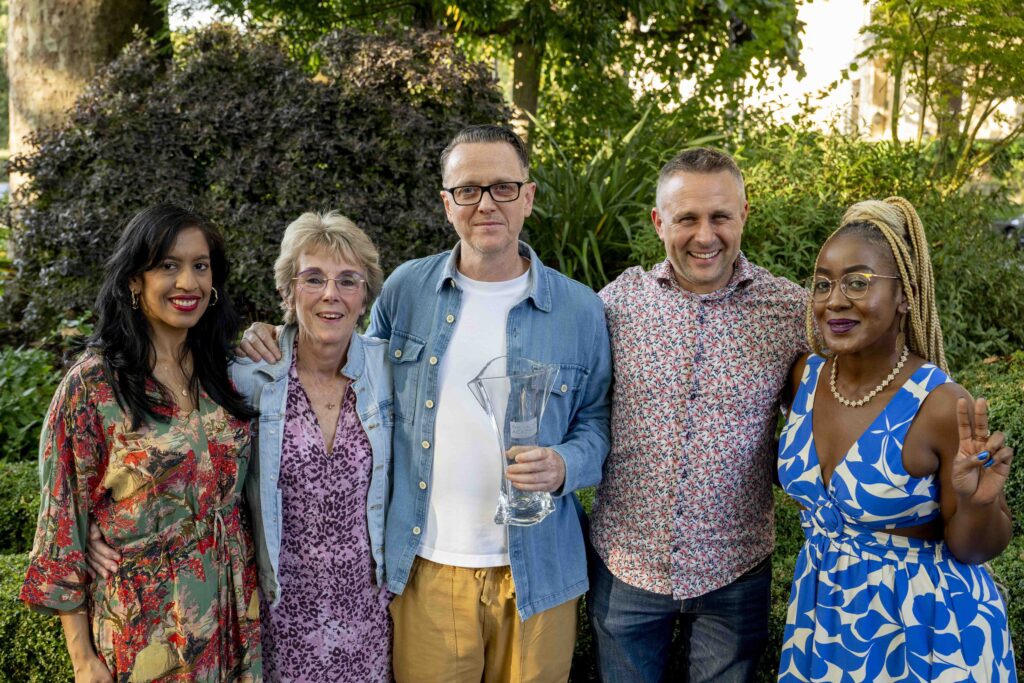
But above all else, the very best thing is the impact of the work. Whether it’s through National Prison Radio, our podcast work, our productions for the BBC, our international projects, or our talent development programme – we make a difference.
Some of the figures speak for themselves. 89% of people who can access National Prison Radio do so. 51% of listeners tune in every day. 95% trust what they hear. And 91% say that National Prison Radio motivates them to make positive changes in their lives.
What is something you wish everybody understood about the realities of working in prison?
I don’t know if this is strictly about working in prison, but one thing I wish everyone appreciated about prisons is just how complex people’s lives can be.
Not everyone walks the same path. People have circumstances thrust upon them. People make decisions in response to all sorts of challenges, pressures, and traumas.
People in prison are human beings. They deserve time, space, care, and support – perhaps more than anyone – because of the often incredibly difficult and complicated paths they’ve walked.
Losing your liberty is the punishment. Prison itself should be a space for change – for transformation, reflection, growth and learning. And that’s what we should be focusing on. We need to create environments that are nurturing and supportive, that give people the opportunity to move forward in life.
What is your favourite podcast or radio show currently?
That’s an impossible question – like asking me to choose a favourite child!
I’ve been told it’s unfair to choose one of our own, but I do have to give a shout out to The Secret Life of Prisons. I know I co-host it and we produce it, but I genuinely think it’s a wonderful thing to be part of (it’s available wherever you get your podcasts…like here!).
In terms of other radio or podcast content out there, my current favourites are The Adam Buxton Podcast, The Rest is Entertainment and This Cultural Life (BBC Radio 4).
This Cultural Life is presented by John Wilson – a fantastic broadcaster – and it explores the cultural influences that have shaped the artistic lives of leading figures in the arts. It’s a bit like Desert Island Discs, but instead of choosing eight songs, guests reflect on the key cultural moments and influences in their lives. It’s insightful, moving, and often reveals far more than you expect. A brilliant listen.
What is the song that you would use to sum up your time working at the Prison Radio Assocation?
I’m going to cheat and choose two songs – and I won’t apologise too much because asking me to pick one is (again!) like asking me to choose a favourite child. It’s not fair.
Let’s just assume that everything by The Beatles sits quietly at the top of this list. Their music has been the constant soundtrack to my life. But let’s go a little deeper into two songs that feel particularly personal in relation to my time at the PRA.
First, On My Radio by The Selecter. I had to choose something with the word “radio” in the title – because, outside of the people I love, radio is the thing I love most. It has given me a life. It’s given me work, a purpose, a home – I even met my wife through radio. This particular song, a hit from 1979 by Pauline Black’s brilliant 2 Tone band, was around when I was a kid, and it’s one I return to often. It’s catchy, defiant, and joyful – and it reminds me why I fell in love with radio in the first place.
Second, Should I Stay or Should I Go by The Clash – but not just any version. When we launched the radio station at HMP Brixton all those years ago, Billy Bragg – someone I’ve admired for a very long time – was our guest of honour. At the last minute, he rang up and asked if it was alright to bring a mate along: Mr Mick Jones of The Clash!
I know I was only meant to choose one – but with so many memories and moments, I couldn’t quite do it. I hope you’ll forgive me for picking two.
Happy 19th Birthday to us.
If you would like to stay up to speed with what’s going on at the Prison Radio Association subscribe to our monthly newsletter here or follow us on:
X – @prisonradiouk
Instagram – @prisonradiouk
TikTok – @prisonradiouk
Facebook – Prison Radio Association
LinkedIn – Prison Radio Association
And if you would like to celebrate our birthday by making a donation, please hit the big blue button below: